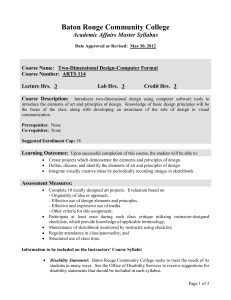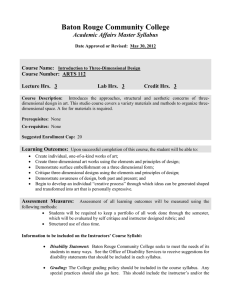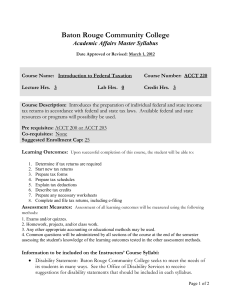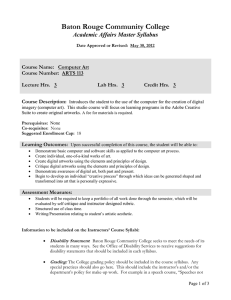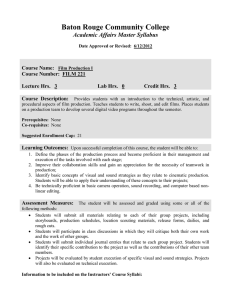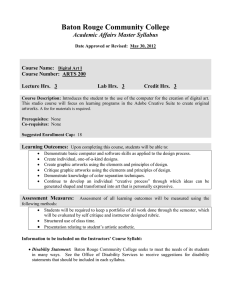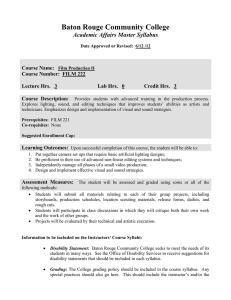Baton Rouge Community College Academic Affairs Master Syllabus
advertisement
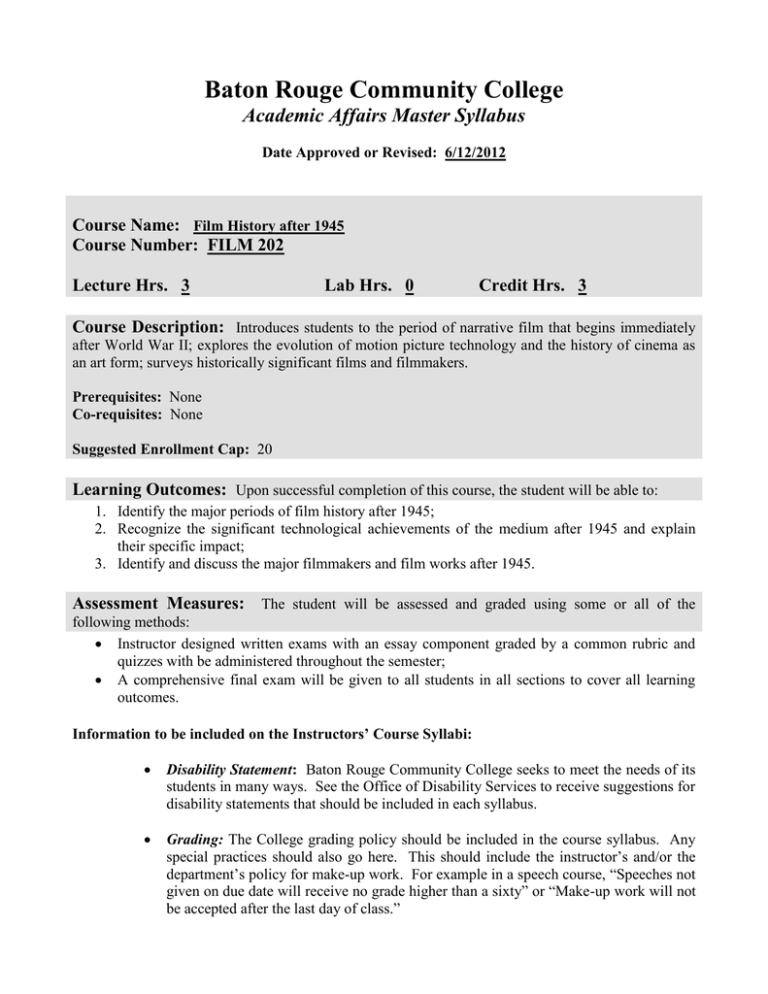
Baton Rouge Community College Academic Affairs Master Syllabus Date Approved or Revised: 6/12/2012 Course Name: Film History after 1945 Course Number: FILM 202 Lecture Hrs. 3 Lab Hrs. 0 Credit Hrs. 3 Course Description: Introduces students to the period of narrative film that begins immediately after World War II; explores the evolution of motion picture technology and the history of cinema as an art form; surveys historically significant films and filmmakers. Prerequisites: None Co-requisites: None Suggested Enrollment Cap: 20 Learning Outcomes: Upon successful completion of this course, the student will be able to: 1. Identify the major periods of film history after 1945; 2. Recognize the significant technological achievements of the medium after 1945 and explain their specific impact; 3. Identify and discuss the major filmmakers and film works after 1945. Assessment Measures: The student will be assessed and graded using some or all of the following methods: Instructor designed written exams with an essay component graded by a common rubric and quizzes with be administered throughout the semester; A comprehensive final exam will be given to all students in all sections to cover all learning outcomes. Information to be included on the Instructors’ Course Syllabi: Disability Statement: Baton Rouge Community College seeks to meet the needs of its students in many ways. See the Office of Disability Services to receive suggestions for disability statements that should be included in each syllabus. Grading: The College grading policy should be included in the course syllabus. Any special practices should also go here. This should include the instructor’s and/or the department’s policy for make-up work. For example in a speech course, “Speeches not given on due date will receive no grade higher than a sixty” or “Make-up work will not be accepted after the last day of class.” Attendance Policy: Include the overall attendance policy of the college. Instructors may want to add additional information in individual syllabi to meet the needs of their courses. General Policies: Instructors’ policy on the use of things such as beepers and cell phones and/or hand held programmable calculators should be covered in this section. Cheating and Plagiarism: This must be included in all syllabi and should include the penalties for incidents in a given class. Students should have a clear idea of what constitutes cheating in a given course. Safety Concerns: In some programs this may be a major issue. For example, “No student will be allowed in the safety lab without safety glasses.” General statements such as, “Items that may be harmful to one’s self or others should not be brought to class.” Library/ Learning Resources: Since the development of the total person is part of our mission, assignments in the library and/or the Learning Resources Center should be included to assist students in enhancing skills and in using resources. Students should be encouraged to use the library for reading enjoyment as part of lifelong learning. Expanded Course Outline:

